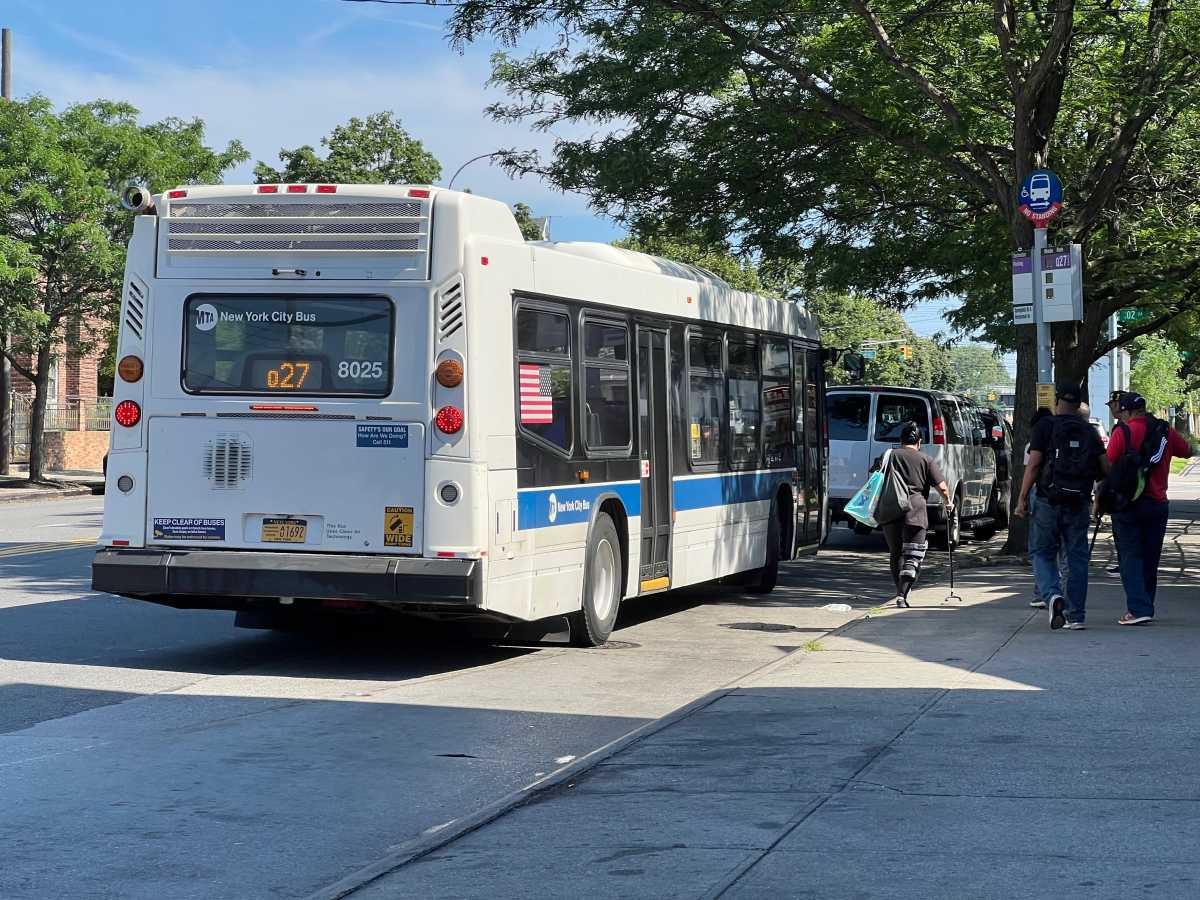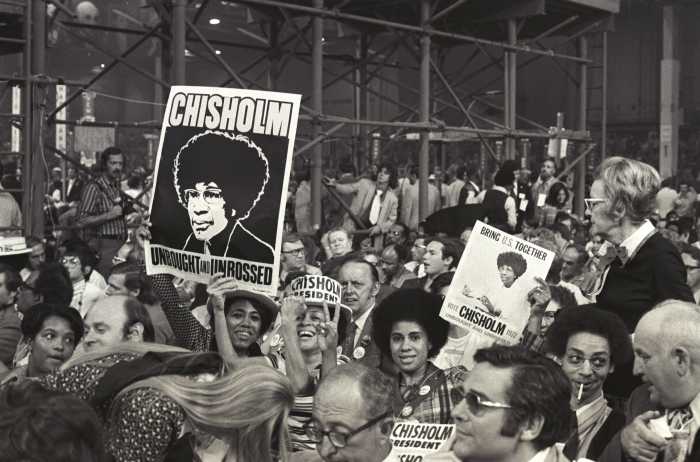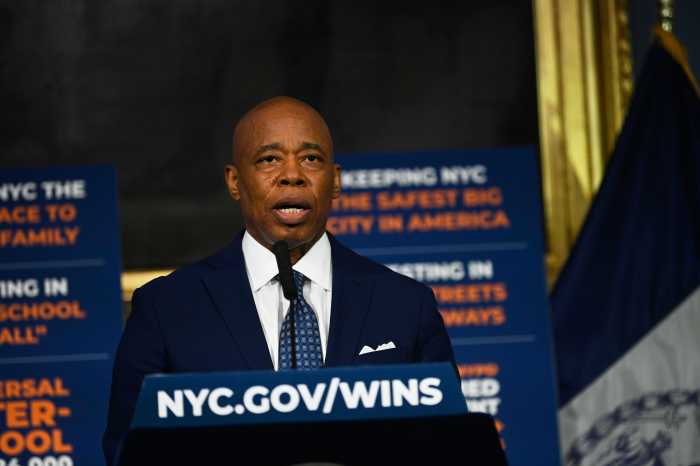
BY KIRSTEN THEODOS | For the past two years, I have dedicated my free time (when I’m not raising my two young children) advocating for the City Council to pass the Small Business Jobs Survival Act, a bill that would stop in excess of 1,000 small businesses from closing and save 8,000 jobs each month in New York City. (Court data show that 500 businesses get evicted every month, and it can be assumed that for every one evicted, another probably walks.)
The S.B.J.S.A is a simple solution to a serious crisis: Give business owners the right to renew their leases and rights to negotiate equally with landlords for fair lease terms.
My advocacy has included helping organize and participate in small-business town halls in four boroughs and meeting with councilmembers seeking their support for the S.B.J.S.A. Living in the East Village, I was sick and tired of losing my favorite shops and restaurants that, in almost every case, shuttered because of an exorbitant rent hike or because they were denied a lease renewal. Now, I am about to lose my affordable supermarket.
The Stuyvesant Town Associated supermarket’s lease is up at the end of this year. Even though they are a good tenant and are willing to pay a rent increase, their landlord, Blackstone, has communicated they will not get a lease renewal. I spoke to the store’s owner, Joe Falzon, last week and asked what he needed in terms of legislation in order to survive.
“A tax cut isn’t going to help,” he told me. “It won’t help get you a new lease and it won’t make any difference to your bottom line. Something where you can agree to reasonable rent that the landlord has to offer you something — a 10-year lease would help tremendously so businesses can plan… . Right now, if they say you have to go, you have to go.”
I have heard this many times before from small-business owners who attended our forums. Joe used to own three supermarkets in the area. The one on Third Ave. shuttered two years ago; it still remains vacant today. Last year, Joe’s Associated on W. 14th St. in Chelsea closed due to a 300 percent rent hike, and that space also currently remains vacant.
Recently, at Mayor Bill de Blasio’s town hall moderated by Councilmember Corey Johnson, a woman asked about help for small businesses that face skyrocketing rents.
As reported by The Villager last week, “Councilmember Johnson said ‘commercial rent regulation,’ a form of which has been proposed in the city for years via the Small Business Jobs Survival Act, can’t happen without Albany’s support. “
However, the S.B.J.S.A. is not commercial rent control and would not need to involve Albany — this was settled decades ago. In October 1988, when the original Jobs Survival Act was introduced by then-Councilmember Ruth Messinger, it was fiercely opposed by Mayor Ed Koch and Speaker Peter Vallone prior to a scheduled vote by the Economic Development Committee of the City Council. So a special Council public hearing was held. The topic of that hearing was exclusively on the legality of the bill and the city’s authority to enact it. At the hearing’s conclusion, the Economic Development Committee was in full agreement with New York City’s Law Department that the bill was fully constitutional and that the city had “home rule” authority to enact it, and the bill was scheduled for a vote for Dec. 1, 1988.
It’s these types of “alternative facts” that originate from the powerful real estate lobby — i.e., the Real Estate Board of New York (REBNY) — that enable the rigged system that repeatedly has denied a hearing and a vote on the S.B.J.S.A. Councilmember Johnson should be promoting the S.B.J.S.A., a bill that would have saved the Associated market in his district and all the businesses whose leases expired and were either rent-hiked or denied a renewal.
Instead, Johnson questions the “legality” of the bill. A March 24, 2016, article in The Villager, “ ‘Save our supermarket!’ 14th St. grocery faithful take protest to landlord,” reported: “Johnson, who is a sponsor of the [S.B.J.S.A.], said there were doubts about the legality of the bill in its current form, but added that he was committed to resolving the issue.”
And Johnson misinforms the public that New York City does not have home rule to regulate commercial rents. So what have our electeds been doing to save mom-and-pop shops and their employees’ jobs?
Councilmember Dan Garodnick is introducing a bill to provide tax cuts for small-business owners; a bill by Johnson would ensure affordable supermarkets are included in Garodnick’s tax cut; and a bill by Councilmember Margaret Chin requires annual reports on the tax.
Meanwhile, two months ago, the Met Food supermarket in Little Italy shuttered because it was denied a lease renewal.
Ironically, the two Associateds and the Met Food are in Councilmembers Garodnick, Johnson and Chin’s districts. Instead of promoting the S.B.J.S.A. that would have saved all three of these affordable supermarkets that are vital to their communities, these politicians are pushing tax cuts that won’t save a single small business or job in their district.
In short, what good is a tax cut if you don’t have a lease?
I’m not sure what is more shameful: pretending like you care that your constituents are losing the only affordable supermarket in their neighborhood by holding showboat rallies; deliberately steering the public in another legislative direction and disingenuously telling them it will save our supermarkets; or promoting REBNY’s alternative facts to ensure that the real solution — the S.B.J.S.A. — doesn’t get an honest hearing and reach the floor for a vote.
I am writing this talking point because no one at City Hall is fighting for Joe Falzon and the 90 people he employs. Nor are they fighting for the thousands of Stuy Town seniors who live on a fixed income and depend on the Associated because it’s affordable and nearby.
Are we to believe the commitment of these three lawmakers is sincere in wanting to serve the will of the people and find real solutions to these supermarket closings — or are they influenced by special interests’ campaign funds and political ambition?
Every New Yorker knows our hard-working mom-and-pop shop owners are at the mercy of their landlords when their leases expire, and that they desperately need legislation that would give them rights so they can survive. And yet our elected officials work together to introduce bills that wouldn’t save a single business or New Yorker’s job. This is the litmus test of where a lawmaker really stands on passing legislation to save our soon-to-be-extinct supermarkets.
Theodos is co-founder, Take Back NYC






































